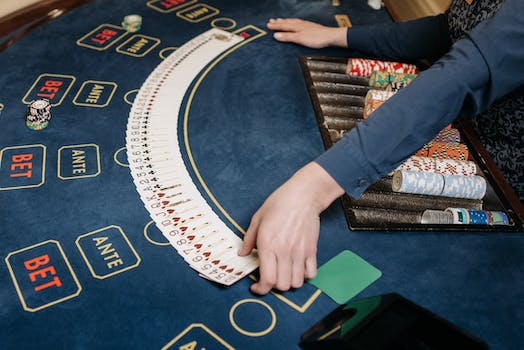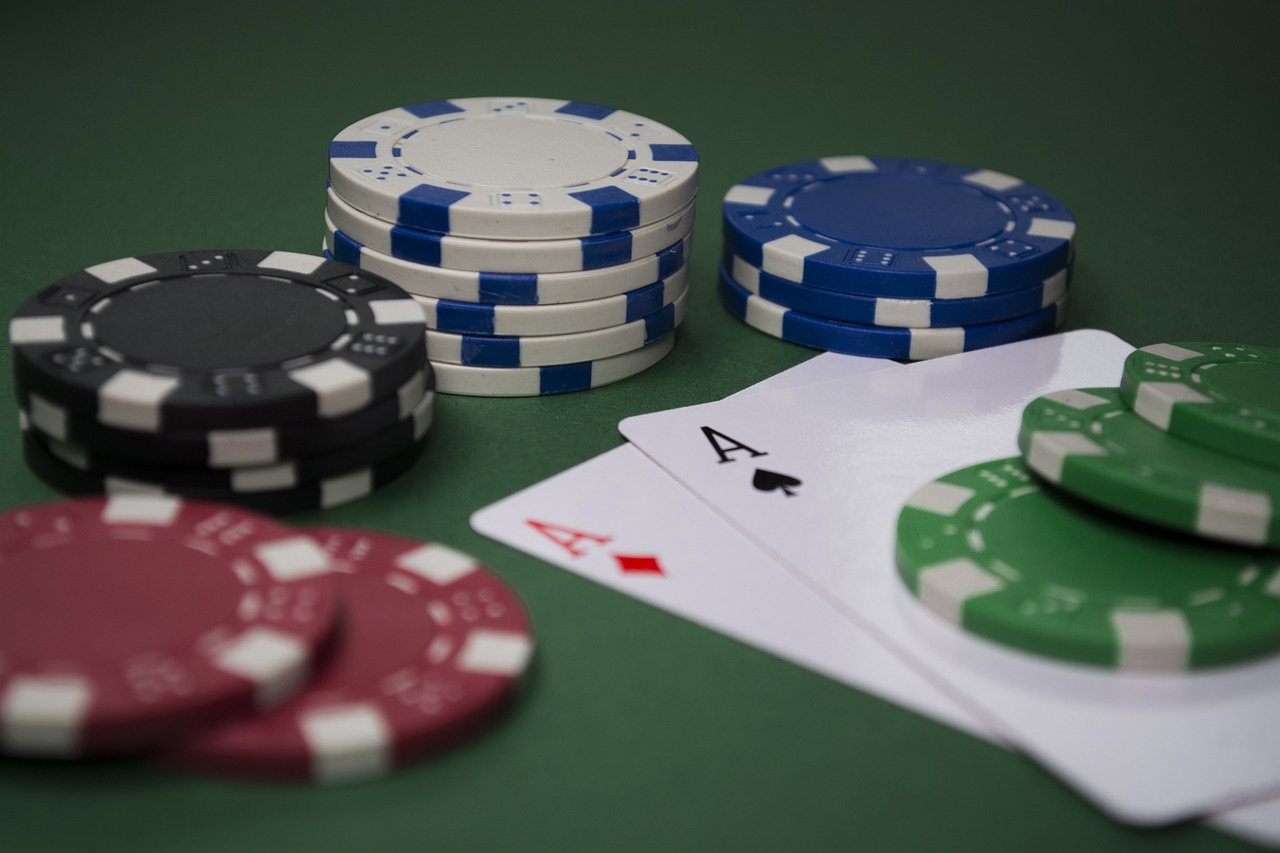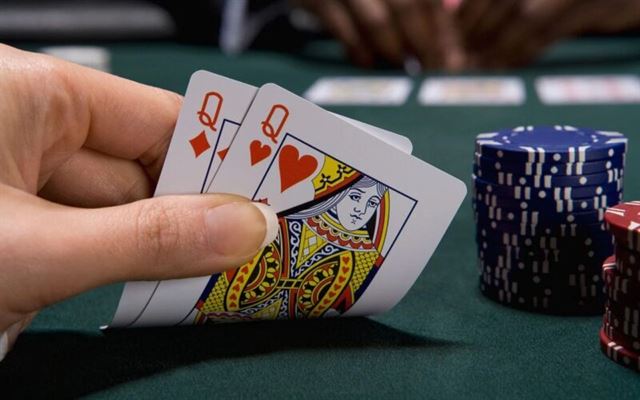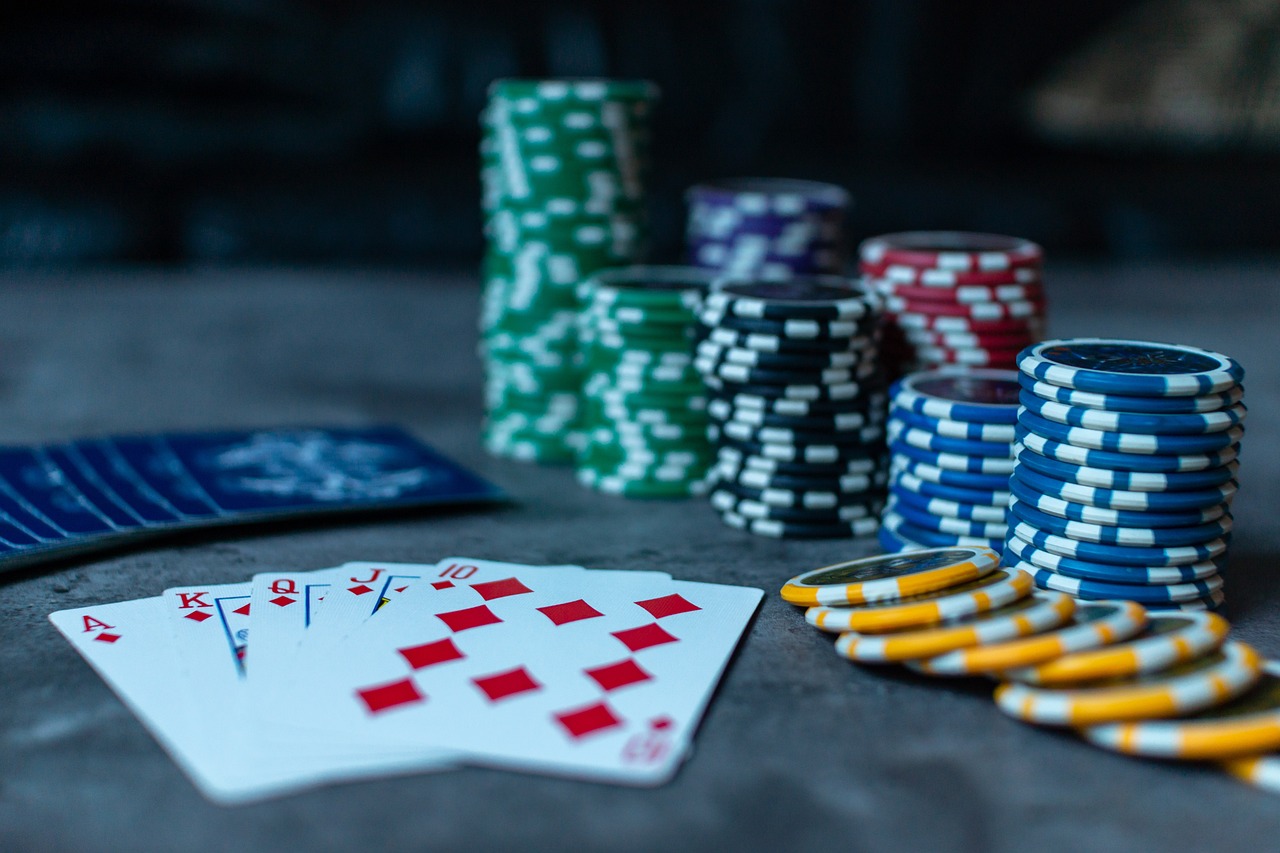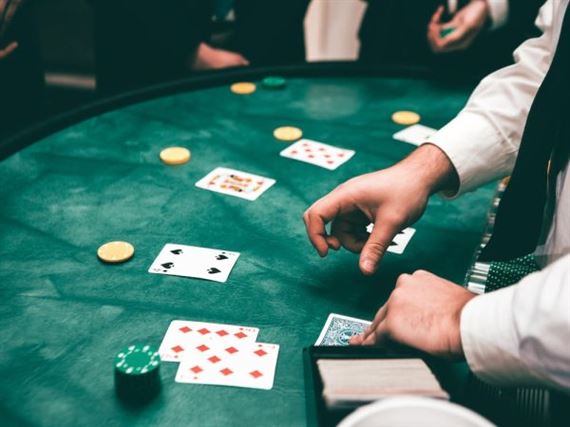Poker is a game that requires not only skill and strategy but also mental strength. This is especially true when it comes to enduring long poker sessions, which can be mentally draining and physically exhausting. In order to master the grind of poker and come out on top, players must develop strategies for maintaining their mental strength throughout these lengthy sessions.
The Importance of Mental Strength in Enduring Long Poker Sessions
One of the most important aspects of mental strength in poker is the ability to stay focused and avoid distractions. Long sessions can test even the most disciplined players, as fatigue sets in and concentration wanes. It is crucial to find ways to stay engaged and avoid getting distracted by external factors such as noise or other players’ actions.
One effective strategy for maintaining focus during long poker sessions is to take regular breaks. Stepping away from the table for a few minutes can help refresh the mind and prevent burnout. During these breaks, it can be helpful to engage in activities that relax and rejuvenate, such as stretching or deep breathing exercises. By incorporating short breaks into the session, players can recharge their mental energy and stay alert.
Another key aspect of mental strength in enduring long poker sessions is managing emotions. Poker is an inherently emotional game, with highs and lows that can easily impact a player’s state of mind. The ability to control emotions and remain level-headed is essential in making rational decisions at the table.
To manage emotions effectively, it is important to develop self-awareness and recognize triggers that may lead to emotional responses. For example, losing a big hand or facing a string of bad luck can be frustrating and provoke anger or tilt. By acknowledging these triggers, players can work on developing coping mechanisms to maintain composure and make rational decisions.
Additionally, practicing mindfulness can be beneficial in staying emotionally balanced during long poker sessions. Mindfulness involves being fully present in the moment and observing one’s thoughts and feelings without judgment. By cultivating mindfulness, players can detach themselves from emotional reactions and approach each hand with a clear and focused mindset.
Lastly, mental strength in poker also encompasses the ability to handle pressure and setbacks. Long sessions can be mentally demanding, particularly when faced with adversity or a string of losses. It is crucial for players to develop resilience and bounce back from setbacks without letting them affect their overall game.
One effective strategy for handling pressure and setbacks is to maintain a positive mindset. This involves reframing negative experiences as learning opportunities and focusing on the long-term goals rather than short-term outcomes. By adopting a positive mindset, players can stay motivated and confident even in challenging situations.
In conclusion, mental strength plays a vital role in enduring long poker sessions. To master the grind of poker, players must develop strategies for maintaining focus, managing emotions, and handling pressure. By taking regular breaks, practicing mindfulness, and cultivating a positive mindset, players can enhance their mental endurance and increase their chances of success in long poker sessions. So, next time you find yourself at the poker table for an extended period, remember the importance of mental strength and implement these strategies to endure the grind and come out on top.
Strategies for Maintaining Focus and Stamina during Extended Poker Grind
Playing poker can be an exhilarating experience, but it also requires a great deal of focus and stamina, especially during long sessions. Whether you’re a professional player or just enjoy the occasional game, having strategies to maintain your mental and physical endurance is crucial. In this article, we will explore some effective techniques to help you endure the grind and master poker during extended playing sessions.
First and foremost, staying mentally sharp is essential when playing poker for hours on end. One strategy to achieve this is by taking regular breaks. It may seem counterintuitive, but stepping away from the table for a few minutes can actually enhance your performance in the long run. Use these breaks to clear your mind, stretch your legs, and give yourself a chance to refocus. By doing so, you’ll prevent mental fatigue and maintain a higher level of concentration throughout the session.
Another vital aspect of enduring the grind is managing your energy levels. Playing poker for extended periods can be physically demanding, so it’s important to keep your body fueled and hydrated. Make sure to eat healthy snacks that provide sustained energy, such as nuts or fruit, and drink plenty of water to stay properly hydrated. Avoid consuming excessive amounts of caffeine or sugary drinks, as they can lead to crashes and hinder your ability to concentrate effectively.
In addition to physical well-being, maintaining a positive mindset is crucial during long poker sessions. It’s easy to get frustrated or discouraged after a series of losses, but dwelling on negative emotions will only hamper your performance. Instead, practice self-awareness and emotional control. Remind yourself that fluctuations are part of the game and focus on making sound decisions based on the information at hand. Developing a resilient mindset will not only improve your overall performance but also enable you to bounce back from setbacks more quickly.
Furthermore, incorporating mindfulness techniques into your poker routine can significantly enhance your endurance and focus. Mindfulness involves being fully present in the moment, without judgment or attachment to outcomes. During a long poker session, it’s easy for your mind to wander or become overwhelmed by distractions. By practicing mindfulness, you can train yourself to stay focused on each hand, making better decisions and avoiding costly mistakes.
One effective way to cultivate mindfulness is through deep breathing exercises. Take a few moments before each hand to close your eyes, take a deep breath in, and exhale slowly. This simple act will help calm your nervous system, increase oxygen flow to your brain, and improve your ability to concentrate. Additionally, paying attention to your body sensations and thoughts during the game can bring you back to the present moment and prevent your mind from wandering.
Lastly, don’t underestimate the power of regular exercise and a good night’s sleep in maintaining your endurance during long poker sessions. Engaging in physical activity not only keeps your body fit but also releases endorphins that promote mental well-being. Prioritize getting enough restorative sleep as it helps consolidate memories, improves cognitive function, and enhances overall alertness.
In conclusion, enduring the grind and mastering poker during extended playing sessions requires a combination of strategies for maintaining focus and stamina. Taking regular breaks, managing energy levels, cultivating a positive mindset, practicing mindfulness, and prioritizing physical health are all essential components. By incorporating these techniques into your poker routine, you’ll be better equipped to navigate the challenges of long sessions and achieve success at the table. So, embrace the grind, implement these strategies, and watch your poker skills soar!
Mastering the Art of Bankroll Management for Sustained Poker Success
When it comes to poker, endurance is key. Whether you’re a professional player or just enjoy the occasional game with friends, being able to sustain your performance during long sessions is crucial. This article will explore strategies for mastering the art of bankroll management, ensuring that you can endure the grind and achieve sustained success at the poker table.
First and foremost, understanding the concept of bankroll management is essential. Your bankroll is the amount of money you have set aside specifically for playing poker. It’s important to establish a dedicated bankroll separate from your day-to-day finances to ensure responsible gambling habits. By having a defined bankroll, you can better assess your financial situation and make informed decisions about how much you can afford to play with.
One common strategy for bankroll management is the “10% rule.” This rule suggests that you should never risk more than 10% of your total bankroll in a single session. By adhering to this guideline, you minimize the risk of losing a significant portion of your bankroll in one go. Instead, you spread your bets across multiple sessions, allowing for more opportunities to turn things around if luck isn’t on your side.
Another important aspect of bankroll management is setting limits. Before you start playing, determine both a loss limit and a win goal. A loss limit is the maximum amount you are willing to lose in a session, while a win goal is the target amount you aim to reach before calling it quits. By setting these limits, you avoid chasing losses and falling into the trap of continuing to play when you’re already down. Likewise, reaching your win goal ensures that you leave the table while ahead, protecting your profits.
In addition to setting limits, it’s crucial to track your results. Keep a record of your wins and losses, as well as any relevant details about each session. This data can provide valuable insights into your performance over time. By analyzing your results, you can identify patterns, strengths, and weaknesses in your game. This information allows you to make adjustments and refine your strategies accordingly, ultimately improving your chances of long-term success.
Furthermore, managing your emotions is key to enduring the grind of poker. It’s easy to get caught up in the excitement or frustration of a game, but maintaining a level head is essential for making rational decisions. Emotional decision-making often leads to impulsive moves that can quickly deplete your bankroll. Take breaks when needed, step away from the table to clear your mind, and always remember to play with a calm and focused mindset.
Lastly, don’t be afraid to seek guidance from experienced players or study resources. Poker is a constantly evolving game, and staying on top of the latest strategies and trends can give you an edge over your opponents. Joining forums or poker communities can provide opportunities to learn from others and discuss strategies. Additionally, reading books or watching instructional videos by renowned players can help you refine your skills and adapt to different playing styles.
In conclusion, mastering the art of bankroll management is crucial for sustained success in poker. By understanding the concept, setting limits, tracking your results, managing emotions, and seeking guidance, you can endure the grind of long sessions and increase your chances of coming out ahead. Remember, poker is a marathon, not a sprint, so approach it with patience, discipline, and a strategic mindset.
Developing Effective Mindset Techniques to Overcome Challenges in Long Poker Sessions
Poker is a game that requires not only skill and strategy but also mental endurance. Whether you’re playing in a casino or online, long sessions can be physically and mentally challenging. To excel in this game, it’s essential to develop an effective mindset that allows you to overcome the challenges that arise during these marathon sessions.
One of the most important mindset techniques for enduring long poker sessions is maintaining focus. It’s easy to become distracted or lose concentration when playing for hours on end. To combat this, it’s crucial to eliminate any potential distractions before starting your session. Put away your phone, turn off the TV, and create a quiet environment that allows you to fully concentrate on the game at hand.
Another key aspect of maintaining focus is practicing mindfulness. Mindfulness involves being present in the moment and fully aware of your thoughts and emotions. During a long poker session, it’s common to experience swings of both good and bad luck. By practicing mindfulness, you can acknowledge these fluctuations without allowing them to affect your decision-making process. This will help you stay focused on making optimal choices based on the information available to you, rather than getting caught up in the emotional rollercoaster of wins and losses.
In addition to focus and mindfulness, managing your energy levels is essential for enduring long poker sessions. Playing for extended periods can be physically draining, especially if you’re sitting in one place for hours on end. Taking regular breaks to stretch, walk around, and hydrate can help prevent fatigue and keep your energy levels high throughout the session. It’s also important to maintain a healthy diet and get enough sleep before a long session to ensure your body is well-prepared for the demands of the game.
Furthermore, developing resilience is crucial for overcoming the inevitable challenges that arise during long poker sessions. Losing streaks, bad beats, and tough opponents are all part of the game. Instead of letting these setbacks discourage you, view them as opportunities for growth and learning. Resilience allows you to bounce back from adversity and continue playing your best poker, even in the face of difficult circumstances.
Lastly, maintaining a positive mindset is vital for enduring long sessions and performing at your peak. It’s easy to get frustrated or discouraged when things aren’t going your way, but dwelling on negativity will only hinder your performance. Instead, focus on the aspects of the game that you enjoy and appreciate the learning experience that each session provides. By cultivating a positive mindset, you’ll be able to stay motivated and maintain a high level of play throughout even the toughest sessions.
In conclusion, developing an effective mindset is crucial for enduring long poker sessions and excelling in the game. By maintaining focus, practicing mindfulness, managing energy levels, developing resilience, and cultivating a positive mindset, you can overcome the challenges that arise during marathon sessions. Remember, poker is not just a test of skill but also a test of mental endurance. With the right mindset, you can master the grind and achieve success in this exciting and demanding game.


